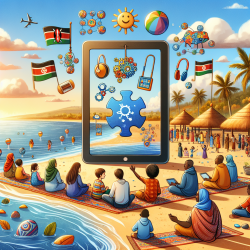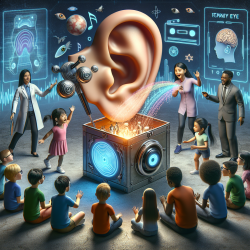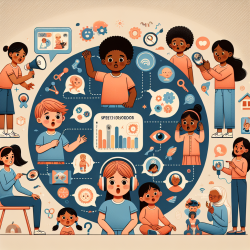As a practitioner working with children with Autism Spectrum Disorder (ASD), it is essential to understand the diverse perceptions and treatment options that different cultures may hold. A recent study titled Parents’ and Professionals’ Perceptions on Causes and Treatment Options for Autism Spectrum Disorders (ASD) in a Multicultural Context on the Kenyan Coast provides valuable insights that can help improve your practice.
This study explored the perceived causes and treatment options for ASD among parents and professionals from diverse cultural backgrounds on the Kenyan Coast. The findings suggest that cultural beliefs significantly influence how ASD is understood and treated. Here are some key takeaways:
Perceived Causes of ASD
- Preternatural Causes: Many participants believed that ASD could be caused by external forces such as evil spirits, witchcraft, and curses. These beliefs were prevalent across different cultural and religious groups.
- Biomedical Causes: Participants also mentioned biomedical causes, including infections, drug abuse, birth complications, malnutrition, and genetic factors. This indicates a blend of traditional and modern medical beliefs.
Treatment Options
- Traditional Treatment: Many parents sought help from traditional healers and spiritual leaders. This included practices like offering prayers, consulting with traditional healers, and using herbal remedies.
- Modern Treatment: Health facilities were also utilized, with many parents reporting positive experiences with therapies provided in hospitals, such as occupational and physiotherapy.
Implementing These Insights
As a practitioner, understanding these cultural nuances can help you provide more effective and culturally sensitive care. Here are some ways to implement these insights:
- Engage with Cultural Beliefs: Recognize and respect the cultural beliefs of the families you work with. This can help build trust and improve communication.
- Collaborate with Traditional Healers: Where appropriate, consider collaborating with traditional healers to provide a more holistic approach to treatment.
- Educate and Inform: Provide information that resonates with the cultural beliefs of the families. This can help them make informed decisions about treatment options.
Encouraging further research in this area can also help in developing more effective intervention programs that are culturally sensitive and holistic. By understanding the cultural context, you can better support families and children with ASD.
To read the original research paper, please follow this link: Parents’ and Professionals’ Perceptions on Causes and Treatment Options for Autism Spectrum Disorders (ASD) in a Multicultural Context on the Kenyan Coast.










